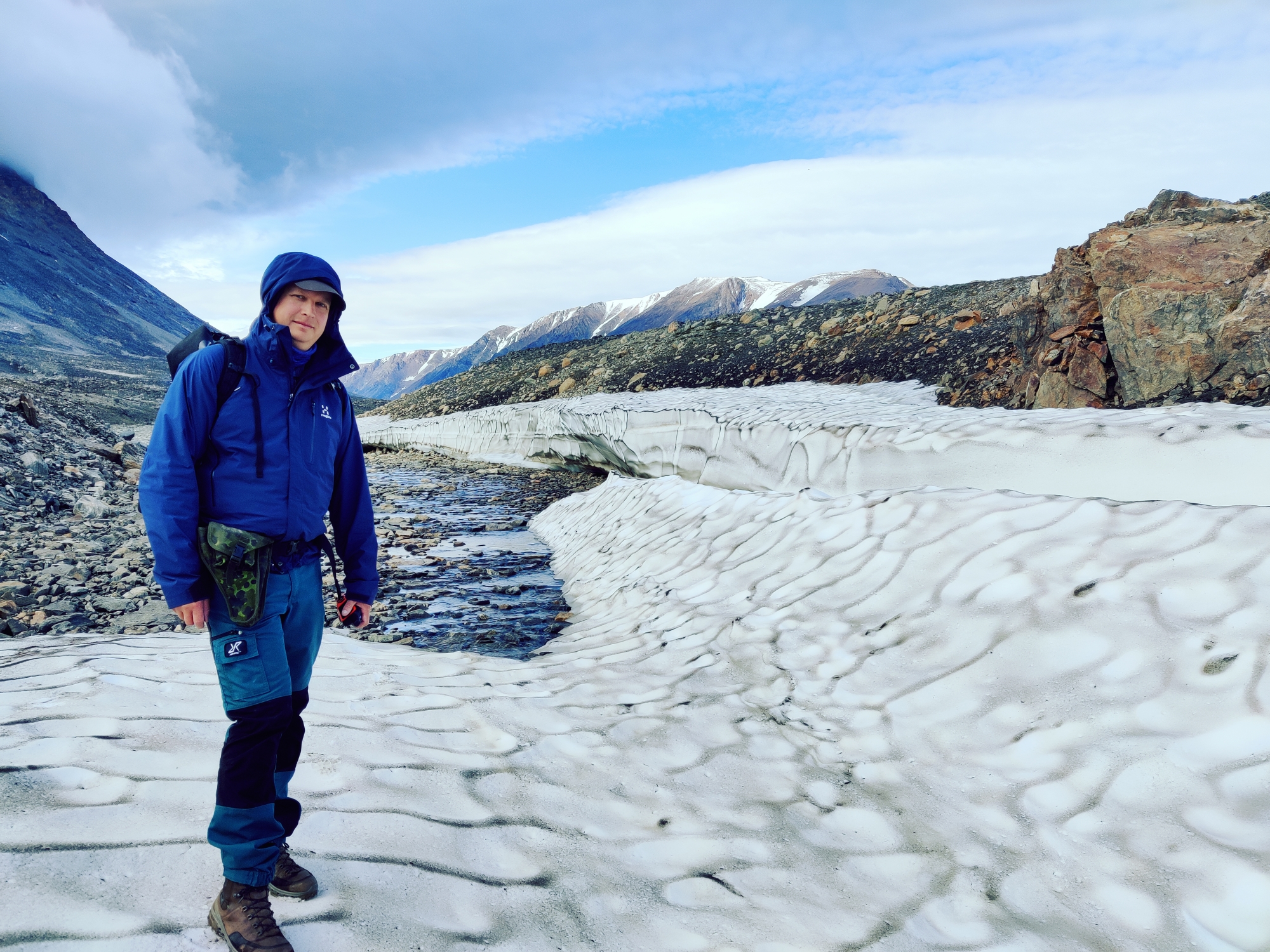Multidisciplinary solutions for sustainable water management

Associate Professor Hannu Marttila has always felt at home by the water. He spent his childhood summers at his family’s cottage located on an island in Lake Saimaa. Trips to Lapland inspired the young Marttila to get into fishing. He tried flyfishing for the first time when he was 10 and has been hooked ever since.
“Flyfishing combines my hobby and work nicely, since one needs to understand the hydraulics of stream waters, the behaviour of fish and stream ecology to catch fish,” Marttila says.
Marttila has since been able to get closely acquainted with water cycles having graduated as Master of Technology in Water and Environmental Engineering from the University of Oulu. His role within the Water, Energy and Environmental engineering research unit has grown over the years from doctoral student to post-doctoral researcher to Associate Professor and group leader. Now he can spend his time at lakes, seas and rivers both as a hobby and as a job.
At the same time, he has the opportunity to travel to interesting places. Writing his doctoral thesis took him to Canada for half a year, which expanded his understanding of Northern regions. Later, a few months in New Zealand with his entire family helped him to understand the importance of water-related issues globally. Both places also provided gorgeous fishing waters. Indeed, Marttila combines fishing with his travels whenever possible. He is also familiar with the fishing waters of the Nordic countries and Scotland.
In 2019, Marttila was appointed a tenure track professor in ecohydrology. The post is a part of the Arctic Interactions and Global Change (ArcI) initiative.
“This theme fits me naturally, and it’s a great step for me in my career as a scientist,” Marttila says, explaining his reasons for applying for the post.

Driving forward multidisciplinary science
What especially fascinates Marttila in his tenure-professor post is its multidisciplinary nature. Collaboration between different fields in science comes built-in with his job. He enjoys expanding his understanding of water-related issues with geographers and ecologists, for example. According to Marttila, one discipline alone cannot solve the vast challenges posed by water systems and water management.
“It’s critical to get an overview of things. The way I see it, you can’t do water research without considering the multidisciplinary side. Take a river for example. When studying that you have to take into account the ecological effects to fish and other life forms, river flow regulation, water consumption by humans, recreational use, ecosystem services and biodiversity,” Marttila lists.
The technical side, which Marttila represents, provides an understanding of processes, new measurement techniques and modelling tools to multidisciplinary research. These make it possible to clarify changes in water quality caused by land use and get a glimpse of the future, for example.
Water, land and air

The water cycle in the Arctic is changing rapidly due to climate change. Rain will fall more often as water instead of snow, and in some locations rainfall, is increasing.
“With a better understanding of these processes, we can improve land-use planning and water conservation, as well as predict extreme weather conditions,” Marttila explains.
So far, the research results have utilised for water protection methods in forestry and agriculture, for example.
The scientist with a technology background enjoys developing, testing and applying new methods and technologies. Combining different measuring techniques, like the continuous monitoring in the watershed, satellite data and hydrological models, provides new information and a better understanding of the big picture. A new perspective to research is also provided by spatial drone-based methods. These enable the studying of topics such as peatland restoration success and the depth variation of snow coverage from the air with high accuracy and speed.
Putting the information to practice
According to Marttila, one of the best parts of being a scientist is solving problems and challenges. It is also rewarding to notice that one’s own results are put into good use.
“I think it’s important to make new information known to users, decision makers and citizens. When I see that my work has had an impact and is being used, I have done my job well,” he says.
The scientist is also on the frontlines in witnessing how climate change will affect the North, especially because his own unit is at the cutting edge of science in their field.
“It gives you the chance to peek into the future and have an impact on the direction in which we are headed. It’s motivating for a scientist,” Marttila ponders.
He hopes he can increase people’s understanding of the big picture through his research. Water does not just drain through the watershed. Biochemical processes, greenhouse gases, plants, land use and ecological and social effects are all related. Together, they form a complex entity.
“The conditions in the North are changing rapidly, not only because of climate change but also as a consequence of land use and harvesting resources. All the processes are not yet understood, and if they are not understood, we can’t provide solutions. I hope I can contribute towards the sustainable use of the water system and making information available. What is most important is that you can raise awareness, train and provide a new perspective. In this way, I can hopefully have an impact on people’s actions,” Marttila summarises.

Text: Aino Soutsalmi
Photos: Hannu Marttila
Hannu Marttila
Associate Professor in Water, Energy and Environmental Engineering Research Unit at the University of Oulu.
Lives in: Oulu, originally from Lappeenranta
Family: Wife and two children
The best thing about my job: Finding new solutions and producing new knowledge
Field of research is suitable for: Enthusiastic and curious people who don’t mind a bit of uncertainty
Hobbies: Being outdoors, flyfishing